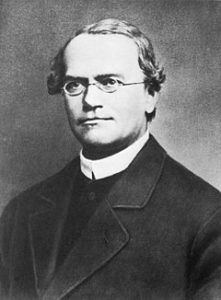For the past decade or so, I've wasted numerous hours of my life engaged in ultimately futile conversations about theology on social media. It seems that I have some sort of natural talent for annoying people at both ends of the spectrum. The outspoken atheists and anti-theists on the internet don't appreciate my confidence and use of logic, reason, and scientific evidence to support my argument in favor of a supernatural creator God. There are also some theists who believe the Bible is literally flawless, or inerrant, and don't like some of the articles I've written expressing my opinions (and research) on that subject. The cliche says you can't please all of the people all of the time, but sometimes it seems like I can't please anybody, anytime. So maybe it's a good thing that pleasing other people isn't a very high priority for me. Frankly, I care a lot more about truth than I'm worried about whether or not you like my writing. No offense meant, but the truth matters more than your feelings. If you like my writing, great. If not, please find something else to read. Different strokes for different folks. My feelings won't be hurt. Quid est veritas? What is truth? To this day, that remains one of the best questions ever asked. Theists who would argue the Bible is inerrant (mistake-free) should think about how they might respond when a knowledgeable atheist points out that Genesis 1 and Genesis 2 provide two different accounts of creation, or could argue that the story of Abraham and Isaac found in Genesis 22 indicates that at times, God appears to be cruel … [Read more...]
A Universe from Nothing
Not long ago I was having a conversation with an atheist acquaintance on social media about the origin of the universe and my friend suggested "nobody" believes there was ever a time when literally nothing existed. Naturally, my response was something along the lines of "Oh, really?" and I posted the Amazon link to physicist Lawrence Krauss' book A Universe From Nothing, the title of which would seem to refute his claim. photo by REUTERS/Leah Millis Curiously, he asked if I'd read the book (as if I'm in the habit of recommending books I didn't write nor haven't read). I didn't bother explaining that I'd first read the book approximately six years ago and had written a review published as the Atlanta Creationism Examiner for the now-defunct Examiner.com website. I briefly entertained the idea of simply republishing the original article here at my website, but that review seemed dated, so I decided not to re-post it. Then, out of the blue, another atheist acquaintance in yet another "discussion" forum posted the link to another six-year-old review of Krauss' book by David Albert, returning it to the forefront of my mind. Which brings us here. Technically speaking, my atheist friend's argument had been correct in the sense that physicists and cosmologists have explained prior to the creation of our universe, time did not exist because it had no means to measure it, given that our measurements for time are exclusively defined by the universe. Thomas Aquinas famously suggested that our universe began with time, not in time. God created the universe literally ex … [Read more...]
Common descent versus common design
My latest "Eureka!" moment while arguing that Charles Darwin's famous theory of common descent with modification is actually a rather pathetic explanation for the modern diversity of life came when I realized that the work of Gregor Mendel had been purloined by evolutionary biologists and made the centerpiece of their argument. Clearly, Mendel's research into genetic recombination demonstrated how descent with modification produced variety in plants, and it stood to reason to assume that the same sort of variety was produced by sexual reproduction by animals. Indeed, anyone brave (or foolish) enough to express skepticism at the idea that Charles Darwin's theory explains the origin of new species had better be prepared for an unprecedented degree of anger, scorn, ridicule, and frequent suggestions to consider remedial biology classes. The question remains: does Mendel's work truly explain the origin of new species, or is that explanation flawed? The idea sounds preposterous on the surface, sort of like the plot of a bad science fiction movie titled Planet of the Furless Apes. Darwin famously scribbled "Monkeys make men" in one of his notebooks to capture the idea that modern evolutionary biologists might call "changes of accumulations in allele frequency changes", which is a fancy way of saying that humans evolved from apes when certain DNA patterns become dominant while others become recessive. Humans lost their fur, grew physically smaller but developed bigger brains, simply because we could. It is theoretically possible, and the only other potential explanation in … [Read more...]
The gods of atheism
Most atheists will claim they don't believe in gods, but they're wrong. They simply don't recognize their gods as being gods because they lack the traditional names like Jesus, Yahweh, or Allah. The gods of atheism (and science) are Time and Luck. Yeah, I know--not all scientists are atheists, but most atheists want to think of themselves as intellectuals and scientists, though. Consider the following paragraph found in an article from the Atlanta Journal-Constitution, titled "Here's what happened when scientists gave octopuses ecstasy:" They (researchers from Johns Hopkins University) noted that octopuses are separated from humans by more than 500 million years of evolution and have brains that are more similar to those of snails. However, with MDMA, they were able to exhibit some of the same actions of people. Now if you're like me a few questions might have just popped into your head, such as: how would an octopus and a human being "share" a common ancestor? The relationship between "ancestor" and "descendant" is normally defined by sexual reproduction between two members of the same species. The two "species" in question have quite a few very obvious morphological differences, and the only person who apparently ever considered the quantitative differences between two distinctly different but allegedly related species seems to have been philosopher David Berlinski. Because cows and whales allegedly share a common, land-based mammal ancestor that hypothetically lived approximately 160 million years ago and was only about the size of a modern shrew, we … [Read more...]



